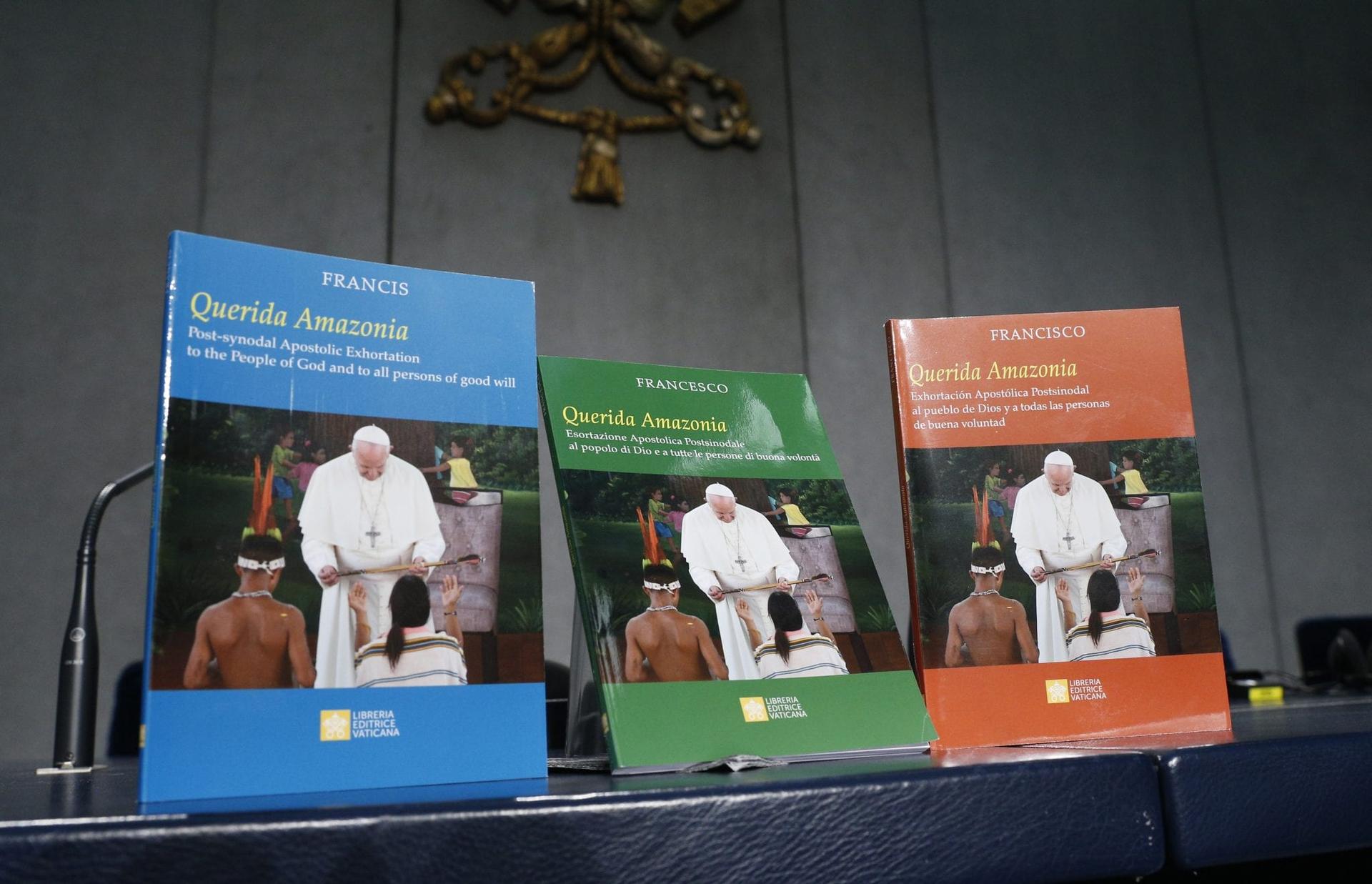CINCINNATI, Ohio – For the second time in fifteen years, Feb. 12 brought increased attention to the Amazon region for Catholics in the United States.
On that date in 2005, two hired gunmen killed Dorothy Stang, a Sister of Notre Dame de Namur from Ohio, as she stood in the middle of a dirt road in the Brazilian Amazon and read to her killers from the Bible. Stang had stood up for poor farmers, their families, and their homeland for more than four decades prior to her murder.
Exactly fifteen years later, a Vatican press conference started by recalling Stang’s extraordinary witness before proceeding with the rollout of Pope Francis’s Apostolic Exhortation, Querida Amazonia (Beloved Amazonia).
The pope’s highly anticipated document has sparked a variety of responses from Catholics around the United States.
Those expecting the pope to weigh in decisively on issues such as married clergy and female deacons instead discovered what Dr. Marcus Mescher, assistant professor of Christian ethics at Xavier University, described to Crux as “clearly a personal response from Francis to the people of the Pan-Amazon region.”
At the heart of this personal response, Mescher continued, is a “dream for a region that fights for the rights of the poor and marginalized, that celebrates its cultural richness, that preserves its natural beauty, and shares its particular way of being Church by giving the Church new faces with Amazonian features.”
Father Joshua J. Whitfield, Pastoral Administrator of St. Rita Catholic Community in Dallas, Texas, explained to Crux that the exhortation “put the souls of our Amazonian brothers and sisters first” and “made their pastoral care the priority and not other ideo-theological battles.”
According to Dr. Christopher Thompson, professor of moral theology at the Saint Paul Seminary School of Divinity, the reception of the document in the United States ought to be secondary to “how it is received among the peoples of the Amazon.”
Thompson expressed his hope to Crux that Amazonian “readers experience something of the pastoral empathy and compassion that seems so readily transparent in the words of the text.”
In an official statement, Archbishop José Gomez, President of the United States Bishops’ Conference, called the exhortation a “hopeful and challenging vision for the future of the Amazon region, one of the most sensitive and crucial ecosystems, and home to a rich diversity of cultures and peoples.”
Respect for that diversity was on display in the exhortation’s style as well as its substance, according to Dr. Katherine Schmidt, assistant professor of theology at Molloy College. Schmidt told Crux that the document’s heavy dose of Amazonian poetry was a surprising “performance of one of the main themes of the exhortation: Inculturation.”
“Pope Francis lifts up a cultural form to make his case, choosing poetry because, as he says in the document, ‘Poetry helps give voice to a painful sensation shared by many of us today’,” added Schmidt.
Theologians and pastoral leaders also noted that the exhortation presents challenges to Catholics in other parts of the world.
Gomez, for example, wrote that the pope “calls all of us in the Americas and throughout the West to examine our ‘style of life’ and to reflect on the consequences that our decisions have for the environment and for the poor.”
For Franciscan Father Dan Horan, assistant professor of systematic theology and spirituality at Catholic Theological Union, the pope is making a renewed invitation to the “ecological conversion” that Francis first introduced in Laudato Si’.
Horan told Crux that the exhortation also honors the Amazon synod’s acknowledgment of the Church’s “complicity in the sins of colonialism,” warns against new forms of colonialism that “eradicate not only diverse human cultures but also the myriad nonhuman species in the Amazon and beyond,” and issues a stiff rebuke of “multinational corporations that seek to commoditize God’s creation.”
According to Schmidt, this call for reflection on colonialism represents a major step forward in light of the fact that even Laudato si’ “never uses the word ‘colonialism’ or ‘colonizing’.”
Schmidt said “it is paramount that church leaders name the sin of colonialism” if they are “to be taken seriously on issues like consumerism, the climate crisis, immigration and refugees, etc.”
Given the fairly widespread expectations – fair or unfair – that the exhortation would explicitly address the issues of female deacons and married priests, early reactions to the exhortation’s surprises on that front have varied.
Whitfield, himself a married Catholic priest due to a pastoral provision allowing Anglican converts to be ordained priests, explained that he found the document’s paragraphs on the priesthood to be “quite refreshing and beautiful,” especially in the way they “challenge us all to pray for priestly vocations in that region and to look for ways to open pathways for missionary priests to serve in remote regions.”
Whitfield also noted that while he is grateful that the document steers clear of “ideo-theological battles,” he does get that some may be disappointed that Francis “doesn’t seem to open a new door to married priests.”
That sense of disappointment was articulated in a statement released Thursday by the Catholic Committee of Appalachia, a grassroots organization that had asked the pope last year to ordain women to the diaconate due to their perceived needs of their region.
The group’s statement affirmed many of the exhortation’s points as a “courageous, and even radical, step forward” but noted that “we, like many other sectors of the Church, are disappointed that Francis did not take this opportunity to respond to the requests of the region’s bishops, clergy, and laity by making some effort toward the opening of the priesthood to married men and of the diaconate to women.”
In their view, the exhortation’s “deep awareness of the domination of creation by human beings” was not adequately matched by an awareness of the “domination of women by men and how the latter is related to the former.”
Schmidt expressed concerns for a different yet related reason, explaining that she was “dismayed that the speculation and fallout over gender will likely overshadow the document’s more powerful and important moments,” such as the document’s vision for “evangelization without colonization for the Amazon.”
As initial reactions to the exhortation fade and the document’s deeper legacy begins to take shape, Dr. Vincent Miller, Gudorf Chair in Catholic Theology and Culture at the University of Dayton, told Crux that “the question really isn’t so much how the pope’s message is being received now.”
“Querida Amazonia is part of the broader synodal process calling the Church as a whole to listen to the threatened ecosystem and peoples of the Amazon,” Miller continued. “The question is how all of us will receive and respond to their cries.”











